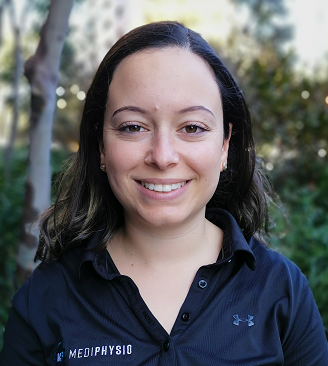Pessaries
Pessary Fitting

ph: 72045704
email: zetland@mediphysio.com.au
BOOK NOW- supporting pelvic organ prolapse
- reducing bulge/heaviness symptoms
- improving urinary incontinence
- avoiding/prolonging the need for surgery
- getting back to exercise especially postnatally

What to expect:
Initial Consultation:
On the initial consultation we get a thorough history, assess your pelvic floor and go through some education. This involves assessing your pelvic floor muscle tone, strength and technique and also looking for signs of prolapse.
Second Consultation:
This is where we determine the correct size and shape of the pessary for you which gets inserted. Once inserted we ensure that you are unable to feel the pessary, that you can cough, squat and move without any movement of the pessary and that you are able to pass urine. We also ensure that you are able to remove the pessary independently. Occasionally, we may need to take a few trials to see which pessary is suitable.
Follow-up:
We then need you to go into everyday life to see how it feels. Pessaries need to be changed every year and we do a reassessment of your pelvic floor. We also refer back to your GP/gynaecologist to assess the pelvic floor mucosal layer health and to ensure no excessive pressure is being put on the walls of the vagina.

Elizabeth Saad (Main treating therapist/ Zetland):
BOOK NOWElizabeth is trained to fit pessaries of all different types and sizes. Elizabeth graduated from the Australian Catholic University with an undergraduate degree of Physiotherapy in 2016. Having also completed further studies in women’s health physiotherapy, she has a special interest in this area treating for pelvic floor dysfunctions and other women’s health issues.
Elizabeth is also qualified in making and fitting pessaries in our Zetland location. Elizabeth has a passion for all things women’s health, having completed further studies in the assessment and treatment of pregnancy, postpartum and pelvic related issues. These are not limited to but include diastasis recti, pelvic girdle pain, prolapse, incontinence, sexual pain as well as bowel dysfunction. Every treatment is individualised and focuses on the goals of the person in front of her. She combines manual therapy, exercise and education to see her patients achieve the best outcomes.
While her passion is in women’s health, she also treats musculoskeletal conditions. This is important when treating women’s health patients, as there are often associated musculoskeletal issues. Elizabeth has seen the benefits of exercise and rehab to improve fitness and overall wellbeing. She values the importance of understanding the holistic nature of an injury and how she can help not just with a person’s pain, but also the underlying causes and aggravations and to prevent future injuries.


